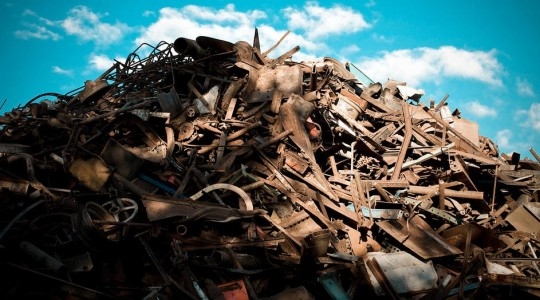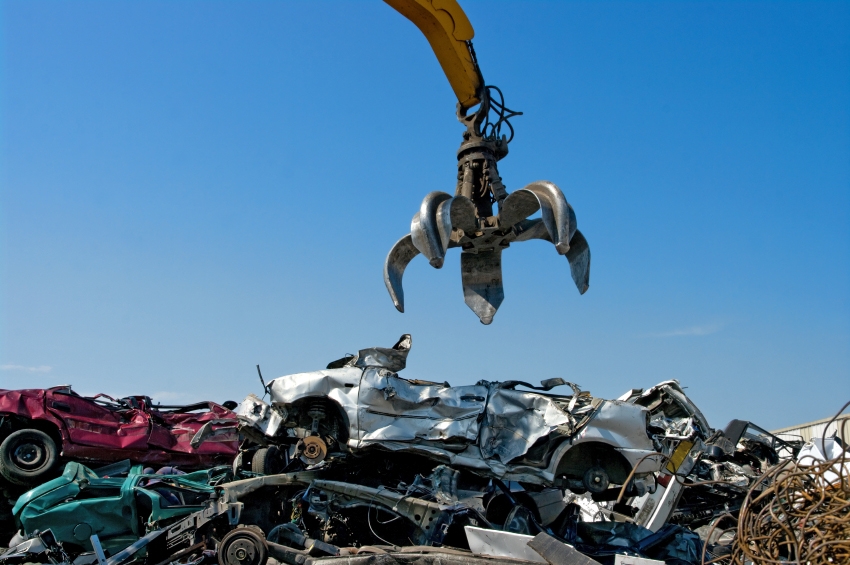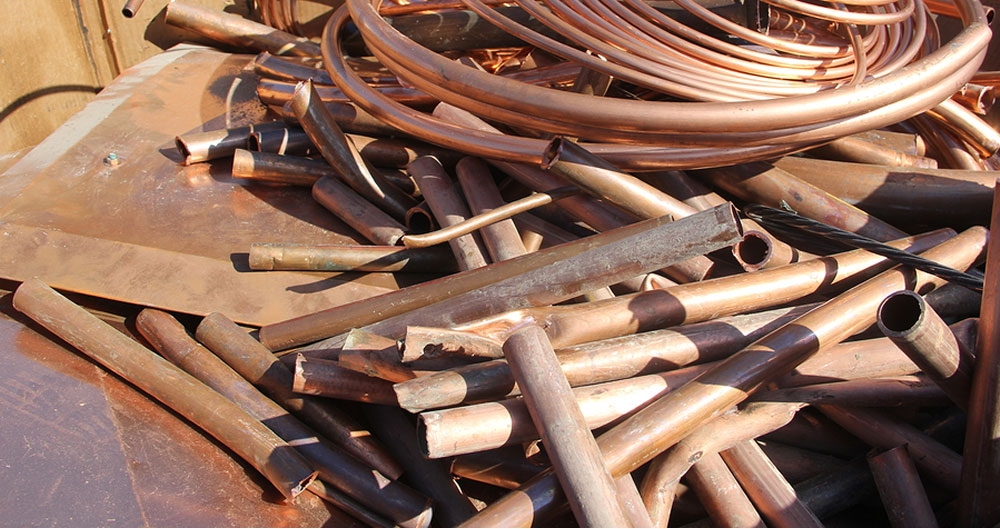An act to improve the legislation on metal scrap trading was presented by the Britain's government on 28 February, 2013 and enacted on 1 December the same year. The new act replaced all the previous relevant legislation and established brand new requirements for scrap metal dealers, including licenses for scrap trading, scrap records and cashless payments. What were the reasons for new legislation creating and how it effected scrap metal industry in the United Kingdom? We'll try to answer these questions in our overview below.
Licenses for scrap metal dealers
According to the Scrap Metal Act 2013, all the metal dealers must have a "scrap metal license", which may be of two types. The first one is site license, which authorizes licensee to conduct their business on any site within the area identified by the license. The second type is a collector's license issued for mobile collectors to carry business in the area mentioned. Scrap metal licenses are issued by local authorities and must include all the relevant information, such as name of the licensee, authority, which issued it and territory, where the license is valid. A person may hold only one license, issued by one authority and more than one license, issued by different authorities. It goes without saying, that authorities must check the licensee concerning their compliance to all the required standards and also they are to check if the candidate for license has ever violated any scrap dealing legislation. The licenses are issued for the period of three years and are fee-paying. A new scrap metal site license costs 908 pounds and 250 pounds are to be paid for collector's license. Renewal application for the licenses cost 728 and 224 pounds respectively. Authorities may revoke scrap metal dealer license if the business is conducted improperly, if any relevant offences are convicted or if a dealer does not conduct scrap trading operations at any of the sites, mentioned in the license.

Ban on buying scrap for cash
A scrap metal dealer may pay for scrap metal only with a check or by means of electronic payment. If scrap metal is bought for cash, the scrap metal dealer or the site manager provided that payment is made at a site, will be found guilty. This concerns all the scrap metal dealers, including mobile collectors and also motor salvage operators, who are considered to be scrap dealers according the Act. A fine of 5,000 pounds is to be paid for cash payment. "Scrap metal" notion includes any old, waste metal or metal, which was in use and products made of or containing metal, which are broken and may not be repaired. Gold, silver and any alloys containing more than 2% of these metals aren't defined as metal scrap.
Compulsory recortd of scrap operations
According to the Scrap Metal Dealers Act 2013, scrap dealer must take record of scrap they trading. These must include all the relevant data, such as:
-Description of the metal;
-The date and time of operation;
-Registration mark of the vehicle, provided that scrap is delivered on one;
-Name and address verified by an ID copy of the person, who provided the scrap;
-Receipt identifying the money transfer or a copy of cheque, etc.

Making a false statement in scrap records is considered to be a law infraction. The Scrap Metal Dealers Act Is to be reviewed after 5 years, from the date it was enacted.
New scrap legislation is aimed to stop metal theft
All the alternations of scrap metal legislation are aimed to reduce metal theft in the United Kingdom. As estimated, metal theft costs economy of the United Kingdom about 770 million pounds per year, which is an enormous sum for 5 billion industry. Trade body of the British metals recycling association welcomed the changes, anticipating considerable improvement of the situation. Then Crime Prevention Minister Jeremy Browne commented on the new Scrap Metal Dealers Act as following: "Our changes, including increasing financial penalties and banning cash payments, have already helped slash metal theft across the UK". According to him, the new legislation will tighten the net around illegal dealers who willfully buy stolen metal; by this reform we will support the legitimate dealers. Deputy Chief Constable Paul Crowther from British Transport Police said that the Act draws more attention to scrap operations, and, thus, requires a great deal of responsibility from traders forcing them to verify all the business operations, protecting in such a way law abiding recyclers from irresponsible ones. Inspector Robin Edwards from British Transport Police remarked: "Metal thieves cause misery for thousands of people, whether targeting the rail network, power cables or telecommunications and the new Act has been designed as a more robust licensing scheme to be monitored by local authorities".
The new law is fundamentally quite good. Most of the scrap metal dealers are ready to meet all the requirements it implies, so that to reduce metal theft and loses brought about by it. However, many dealers find the compulsory records of scrap operations rather onerous, but it is justified but results reached by now. According to statistics, in some areas metal theft scaled down by 70% and by 50% in the majority of districts. Some merchants are complaining that cashless payment system has reduced the number of their clients. Ironically the drop in business appears to correlate with the drop in metal thefts, which suggests that scrap metal trading industry is currently getting more transparent.

Admittedly, scrap metal dealers must be properly informed about all the legislation alternations in order to keep apace with the rapidly developing industry. Local councilors are in charge of that and in many regions, basically with a bigger number of scrap dealers, there is a good-working communication between authorities and dealers. The fees in those areas also appear to be higher than elsewhere, so the scrap merchants seem to recognize, that effective managing of the scrap trading system will be a good return on investment.
All in all, the Scrap Metal Dealers Act 3013 seems to be effective so far. With metal theft scaling down and scrap metal dealer quite satisfied, it will definitely meet all the objectives. As mentioned above, the Act must be reviewed after 5 years of operation and all drawbacks, if any, will be altered.
